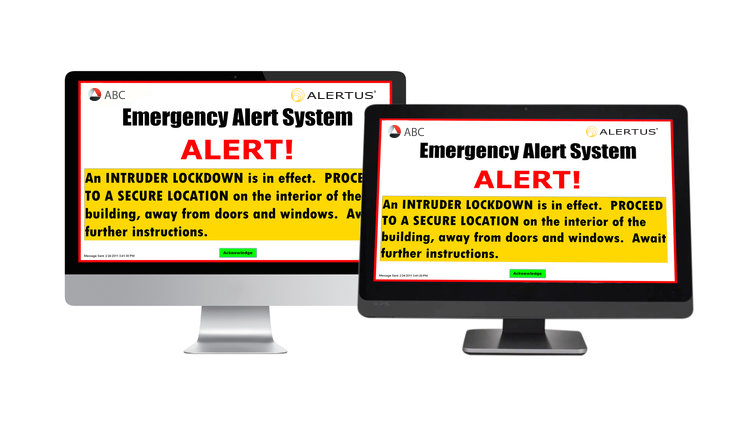Clear, Concise Messaging to an Entire County
Overview
Location: Laclede County, MO
Campus Type: Rural/Suburban
Personnel: 32
Building Count: 3
County Size: 768 sq. miles
County Population: 32,513
At the Laclede County Office of Emergency Management, employees and volunteers are trained specialists in disaster areas and expect the worst. The first sentence in the Office of Emergency Management’s mission statement states that the organization exists “To protect the lives and property of all residents when major disasters threaten public safety in any part of Laclede County.” With this amount of responsibility, it’s understandable that the Director of Emergency Management, Jonathan Ayers, is constantly looking for the best way to disseminate messages to the entire county during an emergency quickly.
After discovering the Alertus Desktop Grant Initiative, Jonathan Ayers immediately believed in the system’s capabilities. Then, Jonathan did something with the software that caught the attention of the Alertus team. He discovered a way to send alerts to police patrol car laptops wirelessly.
Challenge
Responsible for reacting to all disasters in a 768 square mile area, the Laclede County Office of Emergency Management needed a system that quickly and effectively reached every government facility in Laclede County with a clear, concise message. Automated call-tree programs proved unpredictable and time-consuming, while weather-messaging systems were prone to crashing. With the lack of a centralized IT department, Laclede County required a system that would be simple to implement but powerful enough to send a standardized emergency message to dozens of buildings quickly.
Call-Tree Alerting Problems
We used to rely on a call-tree system that allowed the user to record a voice message and then send it out to the cellphones of government personnel. However, we found that the recorded messages didn’t always give a consistent message, and sometimes the news was skewed between different people. Alertus empowers us to provide a clear, concise message to every office within the government center within seconds.
Solution
Simple Implementation
One of the challenges we face in our jurisdiction is that we don’t have a centralized IT department. Every office is in charge of its own IT needs, and there are various hardware and software implementations across the county government. Our primary concern when implementing this software was, “How difficult is this going to be for us to install, set up, and maintain daily?” I was amazed at how simple it was. The instructions were clear, concise, and easy to follow; setting up the server was a breeze. I already had a spare state surplus server, so we loaded Windows Server 2003 on it, and I had the Alertus system up and running. We even started testing clients in less than a day. I had the entire package and several clients installed and working that day; it was awesome. This implementation happened while I was handling my regular office duties, too.
Our Internet connection in the facility is pretty limited, and we’re also running weather wire servers, radar data applications, and cameras. A lot goes over our internet feed, but the Alertus server runs excellently on a weak and busy connection. I like that I can keep it in-house for a system like this. If there’s a problem, I know it’s not because of a third-party service provider. I can walk right back to our Alertus server.
Additional Notification Coverage
Our police patrol cars have laptops mounted on the dash. After I installed Alertus Desktop™ on our server, I thought, what if we could use Alertus to send alerts to our police patrol cars? The challenging books are running on air cards, which allow them to receive alerts from the Alertus server. It shows the fantastic flexibility of Alertus. We blew the team at Alertus away when they found out what we did with the laptops in our patrol cars.
We started with the Alertus Desktop Notification software. However, we like it so much we already want to expand the system. In Lebanon, our home base, a network runs through the whole town. Now, the city is interested in deploying Alertus on a citywide scale. The scalability and expandability of the Alertus system are excellent. We can add to the System at whatever pace we want.



